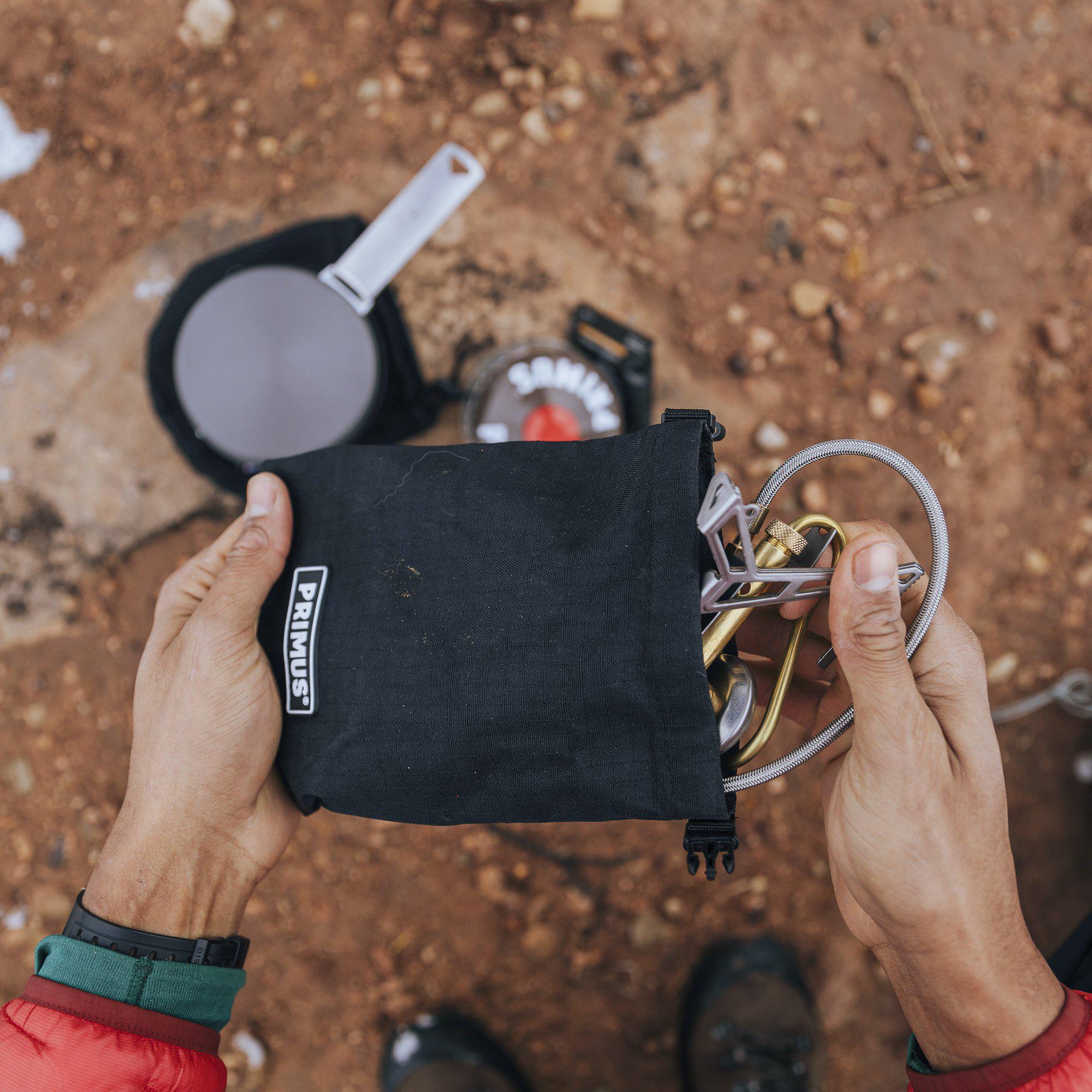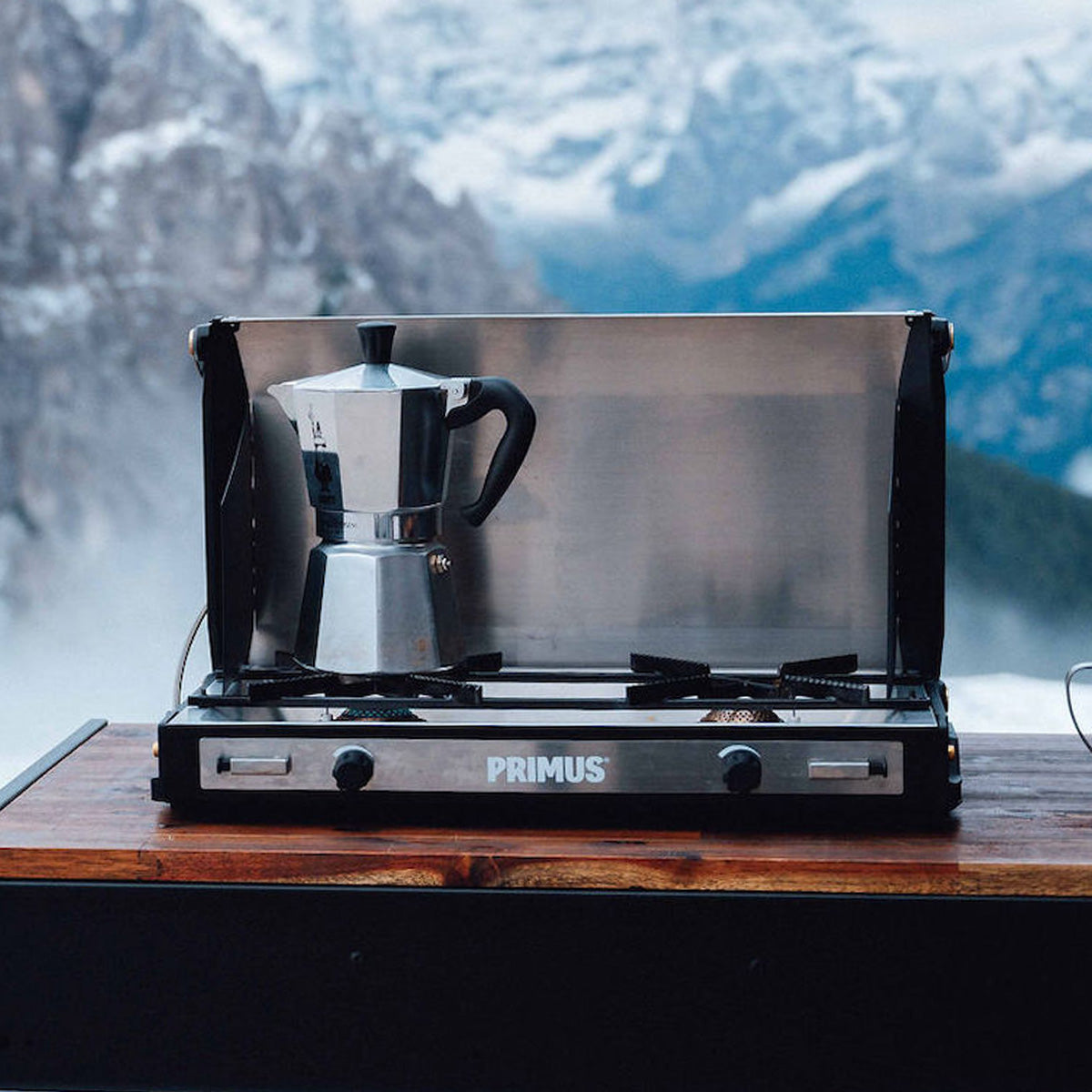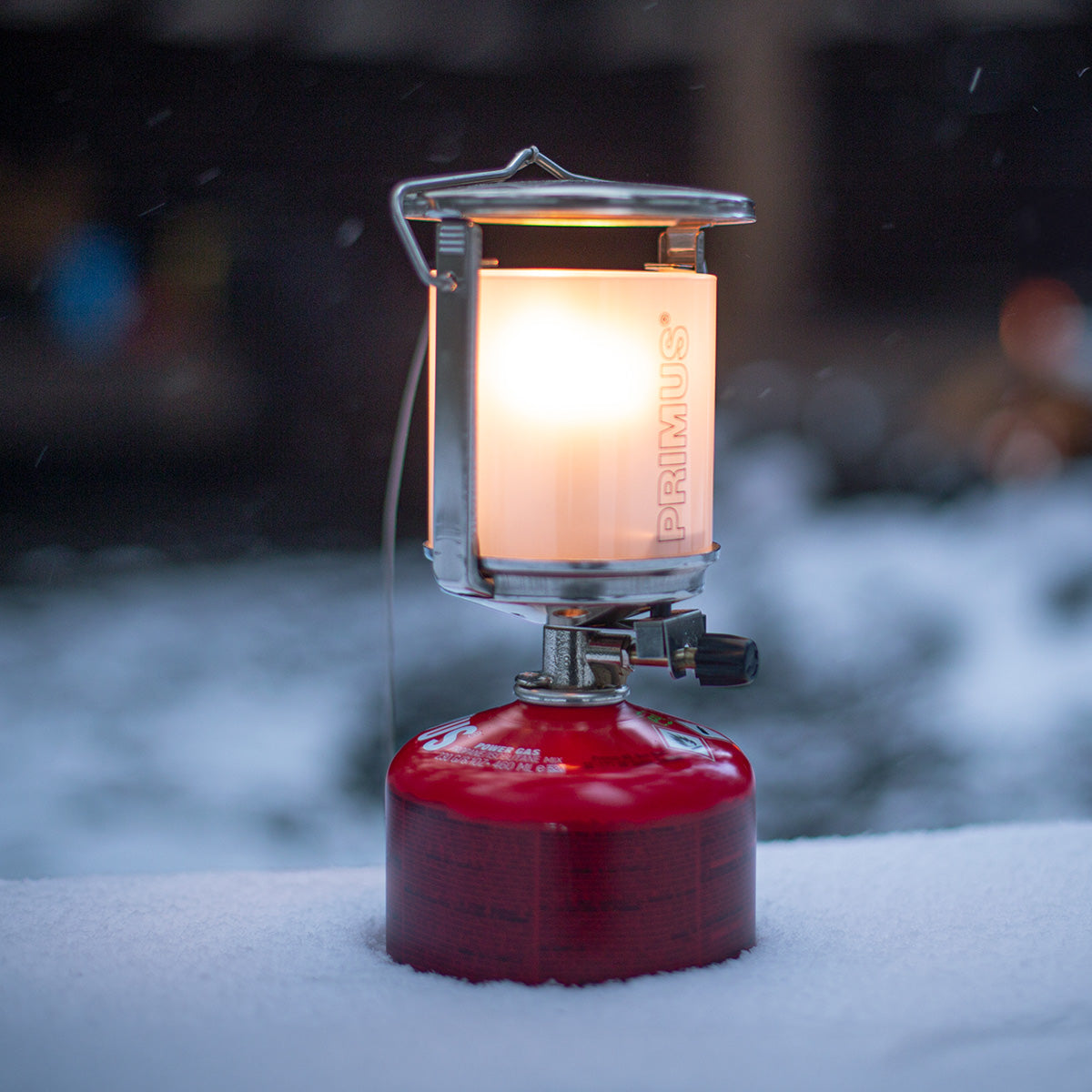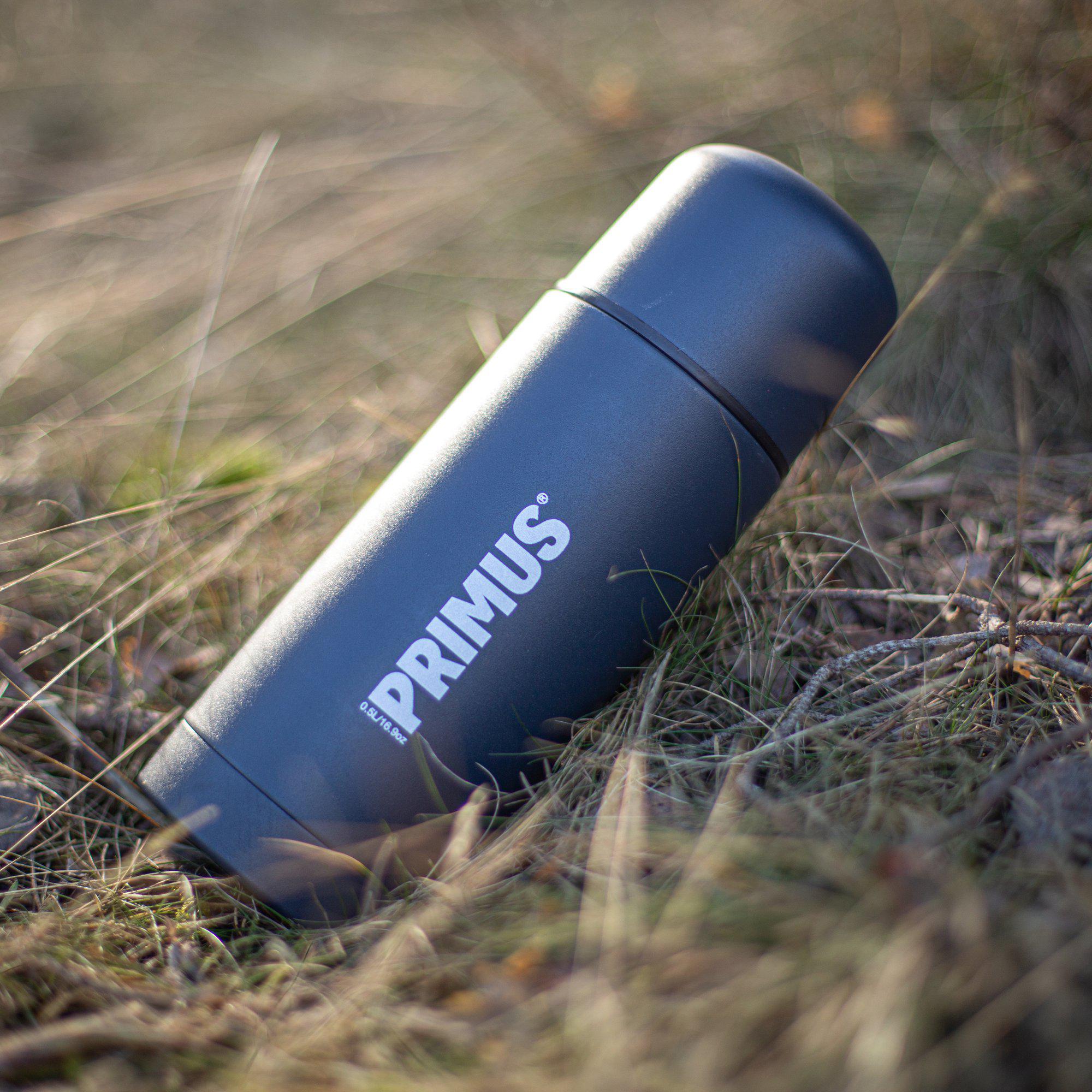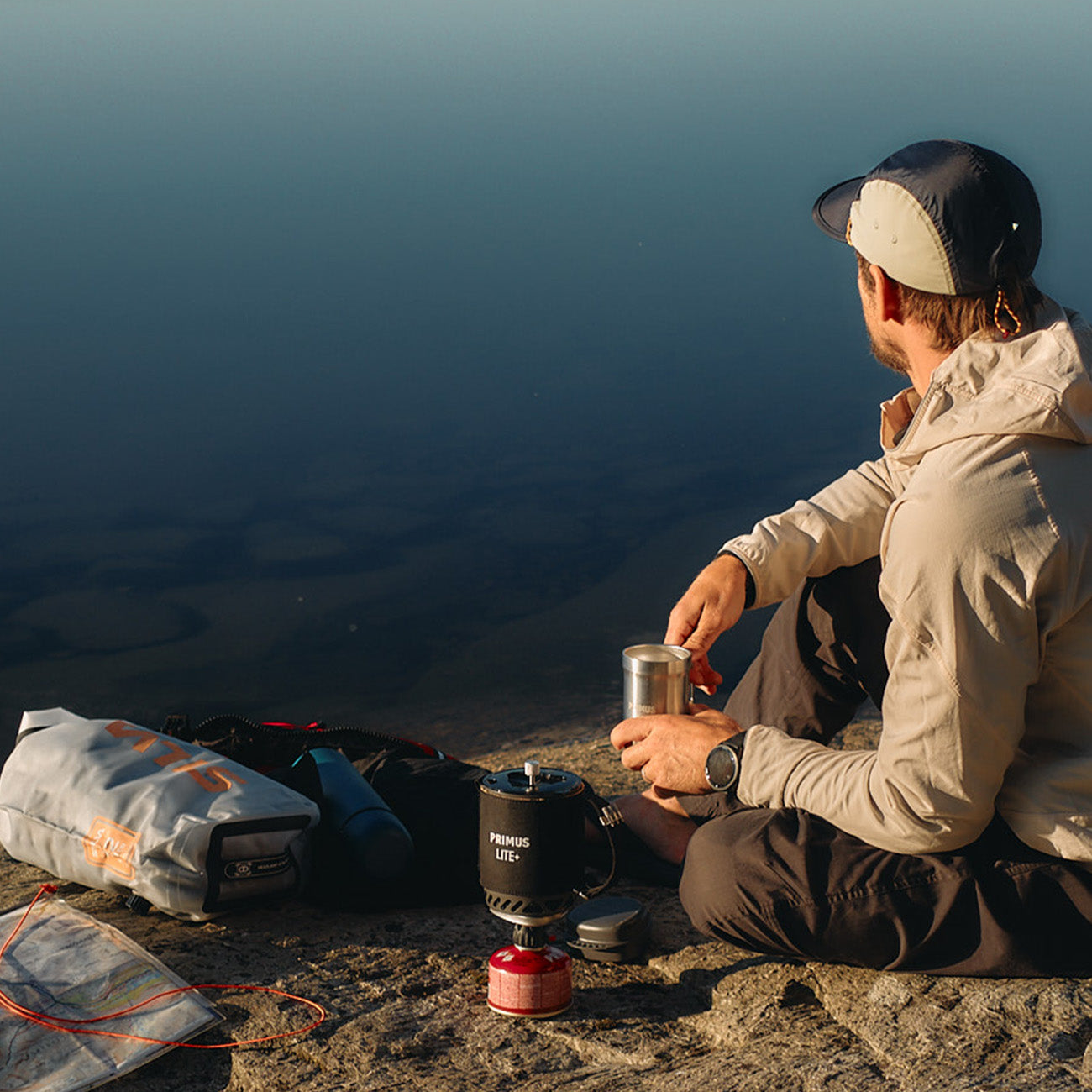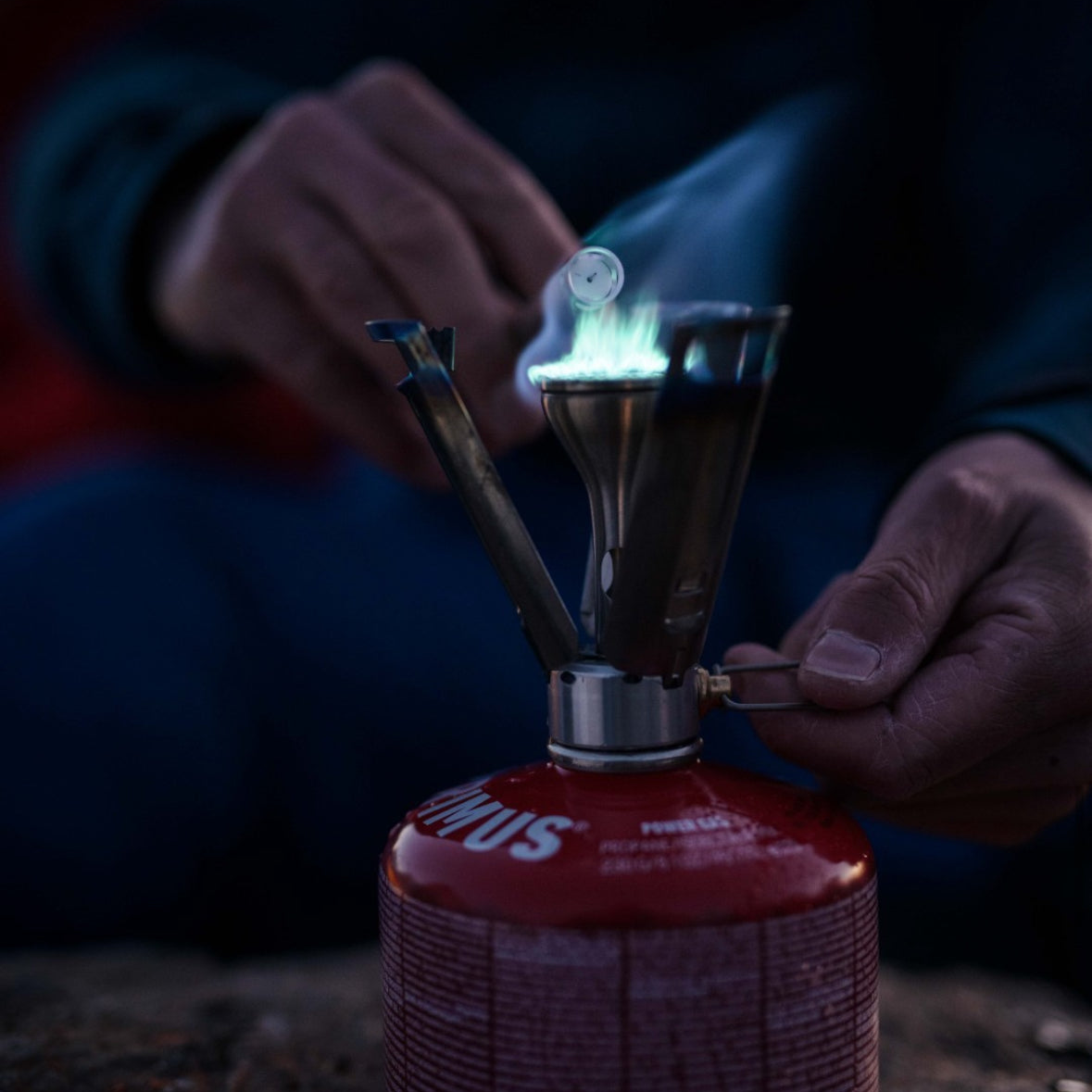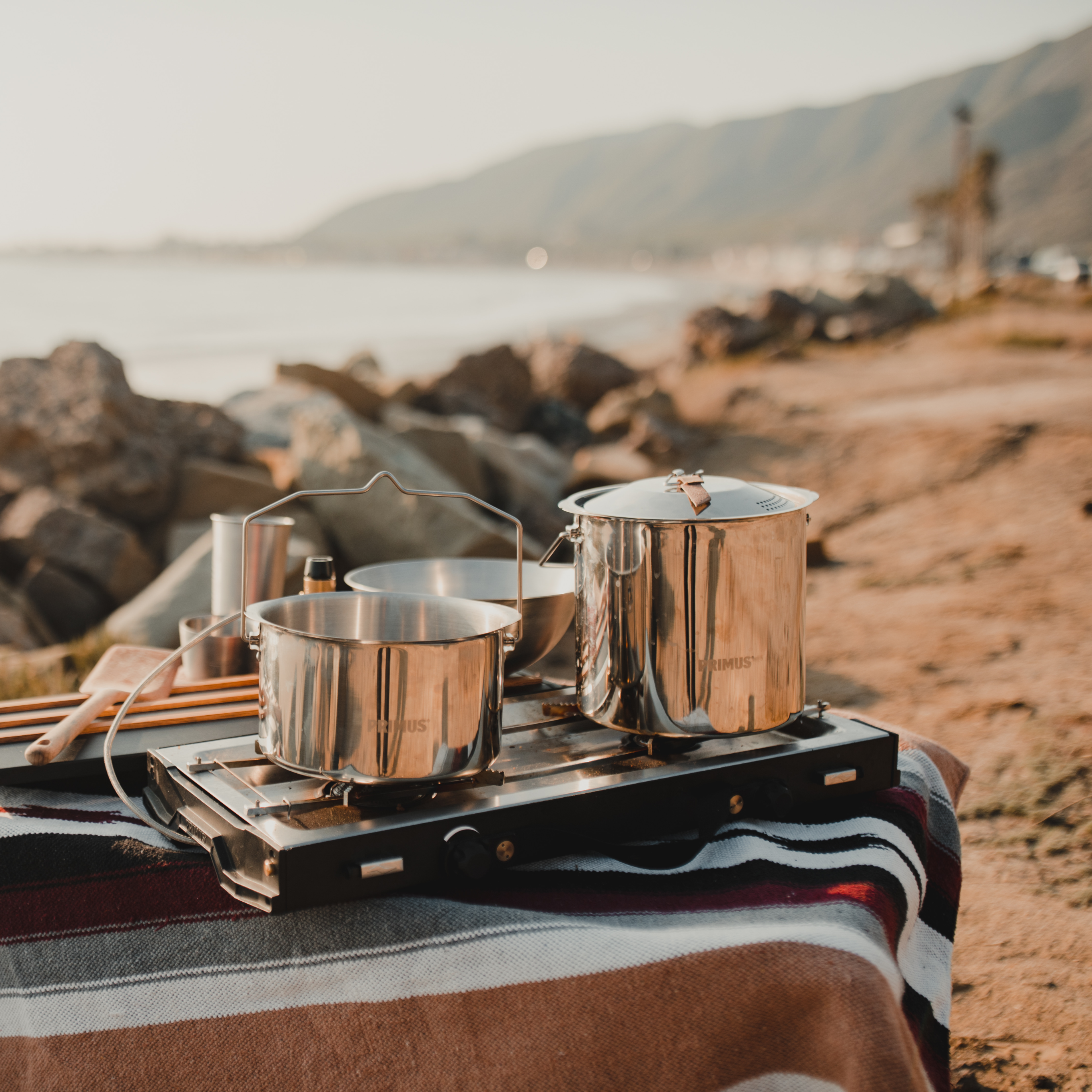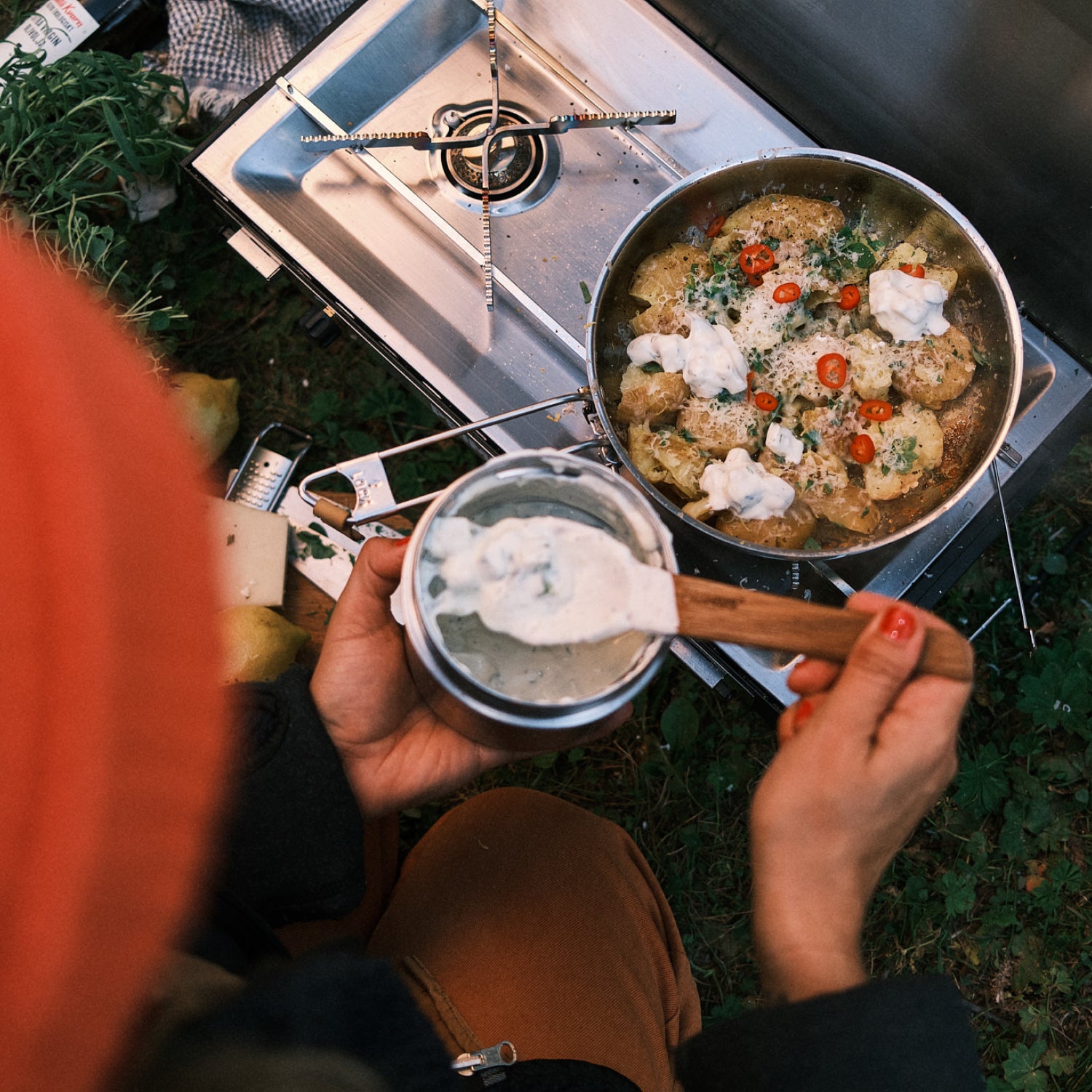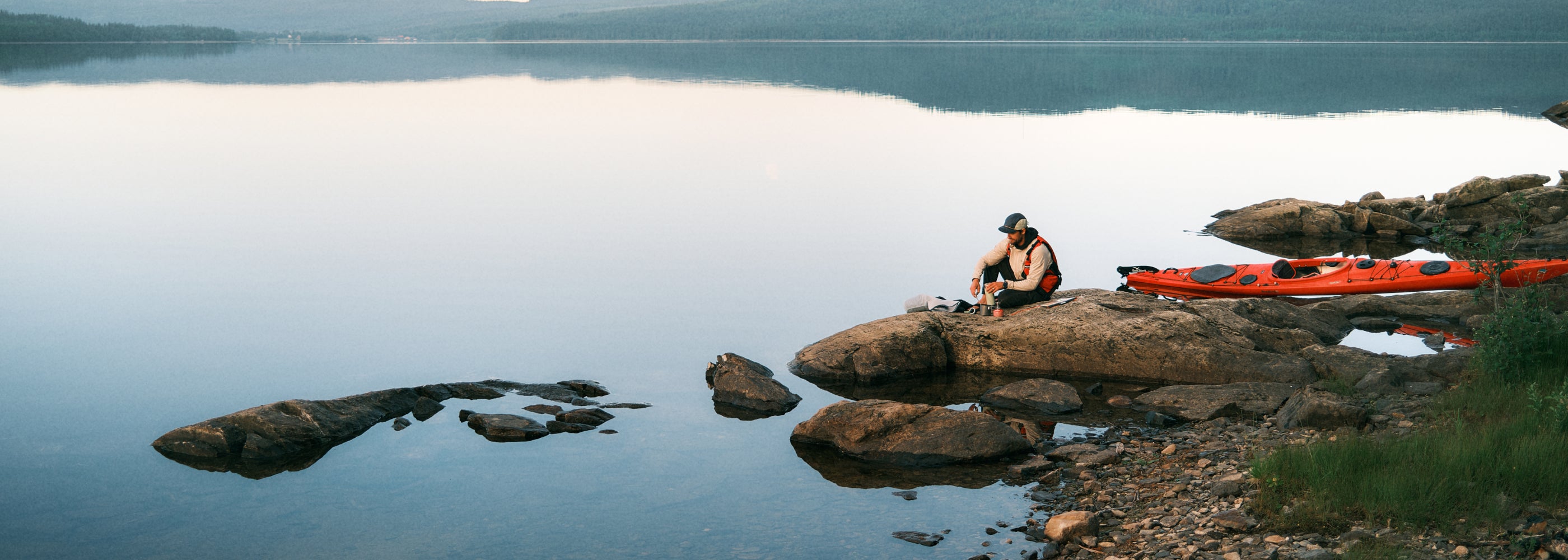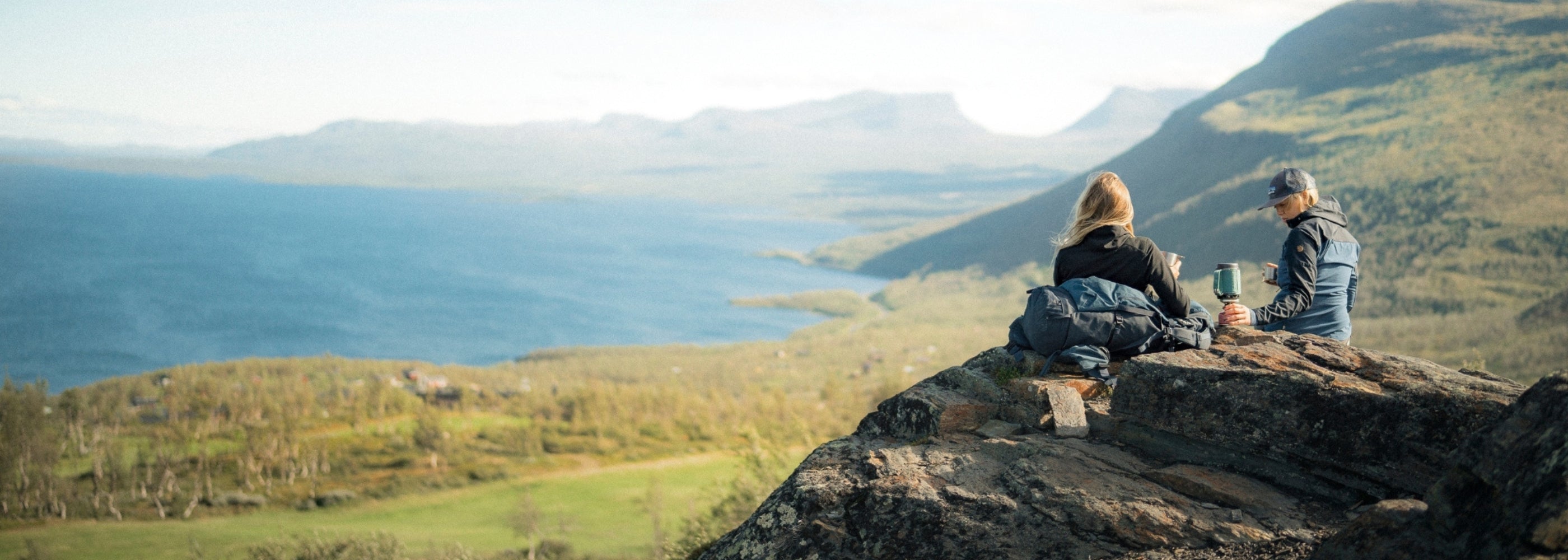DESIGN & MATERIAL
The history of the Primus stove began in the late 1800s, when Frans W. Lindqvist and Victor Svensson created the world’s first soot-free kerosene stove: Primus – “the first” in Latin. Earlier kerosene stoves were smoky and produced soot, but Lindqvist and Svensson developed a more efficient burner that made the stove easier to use and boiled water seven times faster. Primus quickly became popular both for outdoor use and in the home, and revolutionised portable cooking. Today, Primus cooking systems power adventures across the world.

FROM PRODUCTION TO USE
The largest source of emissions for our products is the production phase. The second largest is the use phase. We work to reduce the footprint associated with both manufacturing and use, through design, material choices, and opportunities for servicing.
DESIGN
Designed with sustainability in mind
The majority of a product’s environmental impact is determined in the design phase. That is why we take responsibility from the very beginning, developing outdoor products that last longer, can be repaired, and reused. When they eventually reach the end of their life, they should be recyclable and become part of a new circular flow.
“Our ambition is that all our products should be reusable or recyclable by 2030.” – Staffan Till, Sustainability Manager, Primus
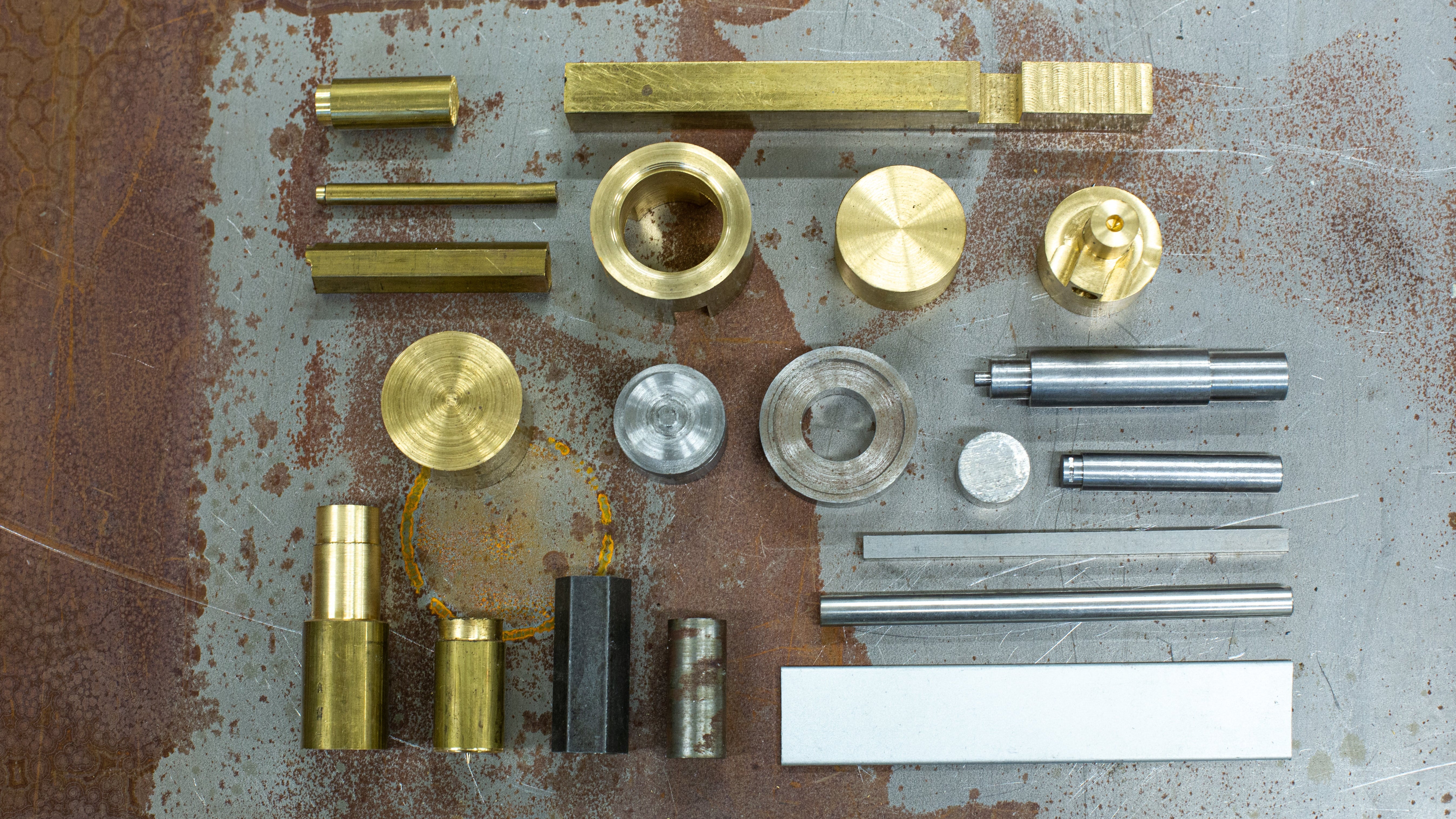
Design & conscious material choices
For us, sustainability means thinking the whole way through – from design and material selection to use and end-of-life recycling. We are developing guidelines and processes that steer us towards lower climate impact and smarter choices throughout the chain.
This includes:
- Bio-based plastics in our Primus cookware sets.
- Vacuum bottles made with lighter materials. – 20 percent less weight without compromising quality
- Continuous review of materials in every new product, ensuring we always choose better alternatives.
Product development at the centre
Product development is at the core of everything we do. We always start by listening to our users – from everyday hikers to professional adventurers, chefs, and mountain guides.
Thanks to our own production facility and close collaboration with key suppliers, we can combine quality with innovation. This enables us to create products that are lighter, more functional, and built to last.
We design all products ourselves and manufacture them in our own factory in Estonia. This gives us full control over the design process and all decisions – and allows us to push the boundaries of what is possible.
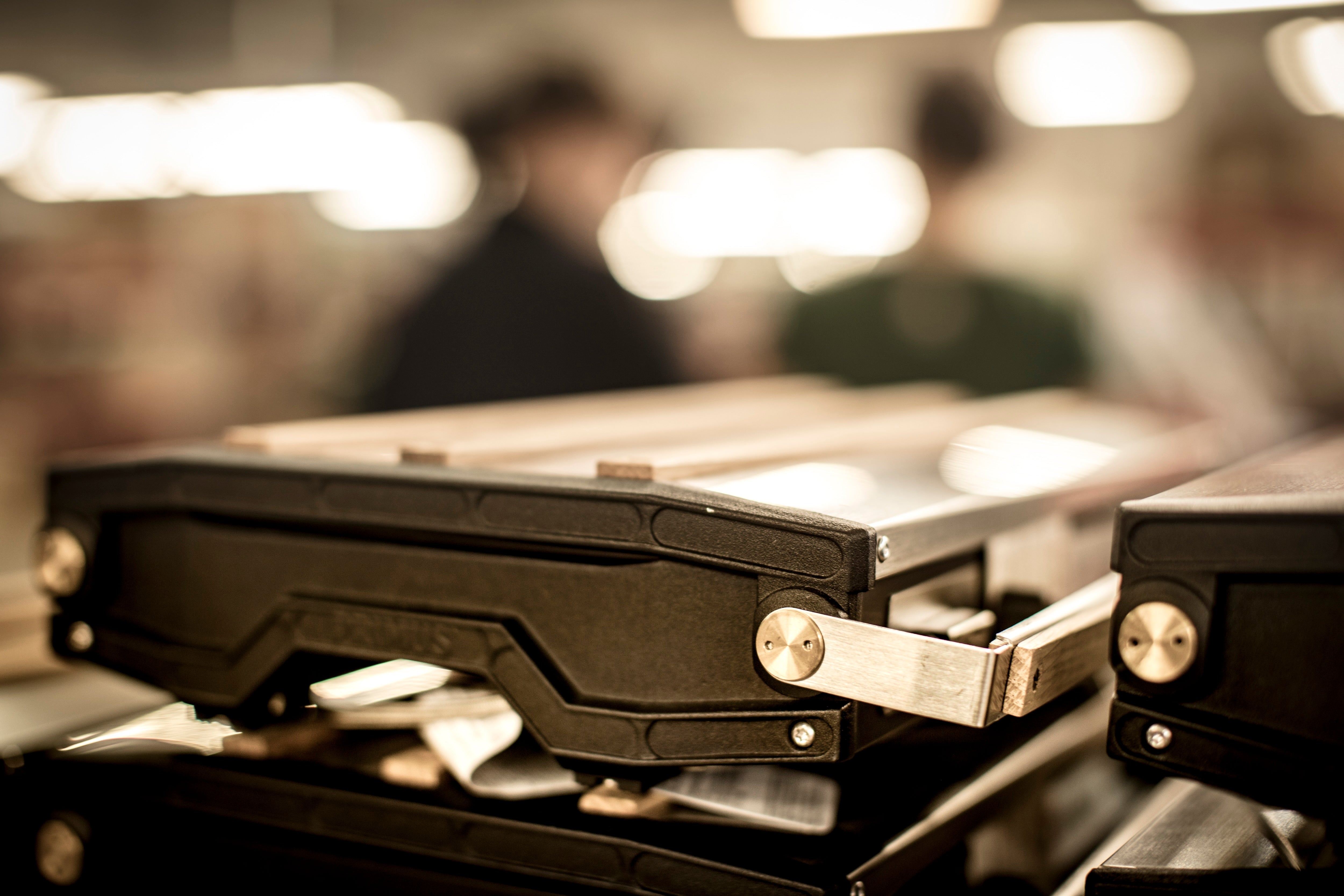
Increasing circularity
Together with Stena Consulting, we have analysed our products and processes to increase recyclability. The result is new design guidelines and updated workflows for our development teams.
Our focus is clear: continuously finding solutions that make our products more circular and contribute to a longer life within the loop.
MATERIAL CHOICES
The importance of materials
The materials used in the Primus product range are the largest source of our greenhouse gas emissions – accounting for almost half of our total climate footprint. At the same time, material choices are crucial for the durability, quality, and lifespan of our products. In other words, it is essential that we find materials that both perform perfectly for the product and have as small a climate impact as possible.

New design & material guidelines
We have introduced new design guidelines and policies that steer us towards lower-impact materials. This includes using more bio-based and recycled materials. For example:
- Vacuum bottles made with lighter materials – 20 percent less weight without compromising performance
- Bio-based polyethylene in the lid of the Primus Lite
At present, around 2.5 percent of the plastics we use are bio-based or recycled. We are working hard to increase this share.
Recycled steel in new products
The upcoming Primus range of vacuum bottles and water bottles will be made from at least 80 percent recycled steel, certified according to RCS Blended. This is an important step in reducing our climate footprint while maintaining high quality and long product life.
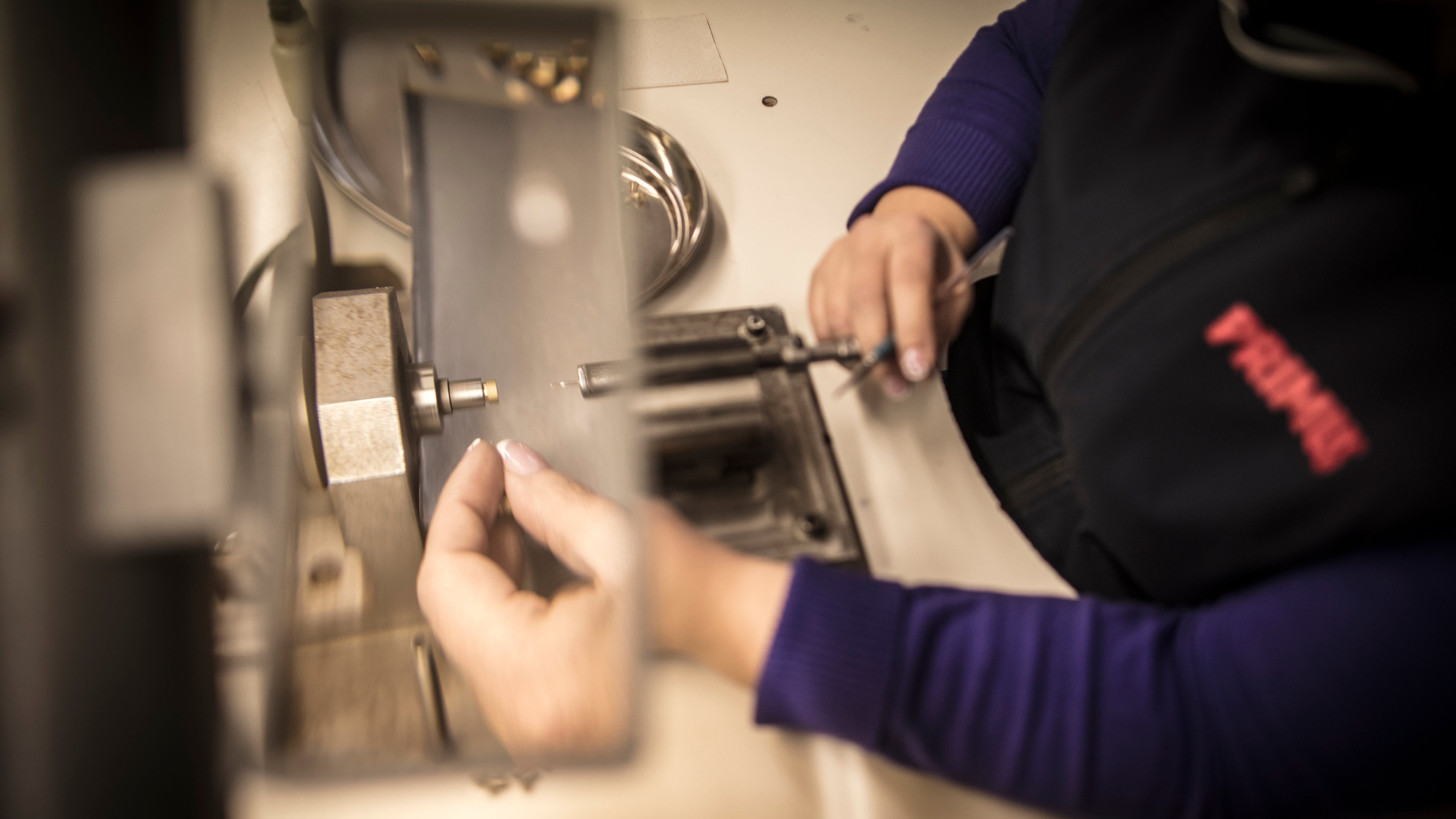
Lower-impact packaging
Packaging plays a central role in our sustainability work. We are currently testing a new supplier located close to our assembly facility in Estonia. This means:
- Shorter transport distances and reduced emissions.
- The option to use FSC-certified and recycled cardboard-
- A more sustainable and circular packaging solution.
Are you in the right place
Please select your store


